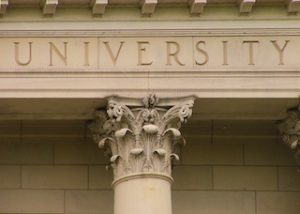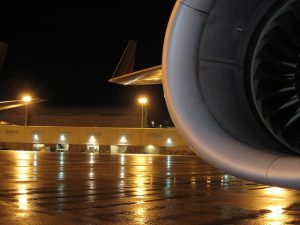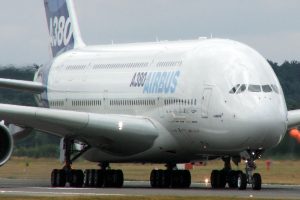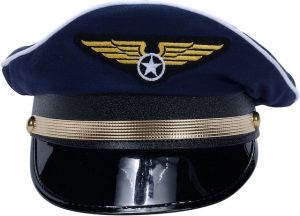How To Get Aerospace Engineering Jobs
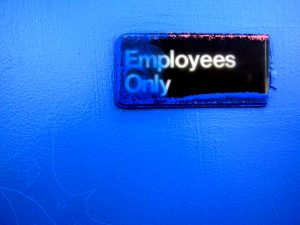 Aerospace engineering is a highly specialized and prestigious field, attracting individuals with a passion for flight, space exploration, and cutting-edge technology. Professionals in this field work on designing, developing, and testing aircraft, spacecraft, satellites, and missiles. As an aerospace engineer, you could be involved in the innovation and improvement of air and space travel, defense systems, and satellite communications. However, breaking into the aerospace industry requires a combination of technical skills, education, hands-on experience, and a strategic approach to job hunting.
Aerospace engineering is a highly specialized and prestigious field, attracting individuals with a passion for flight, space exploration, and cutting-edge technology. Professionals in this field work on designing, developing, and testing aircraft, spacecraft, satellites, and missiles. As an aerospace engineer, you could be involved in the innovation and improvement of air and space travel, defense systems, and satellite communications. However, breaking into the aerospace industry requires a combination of technical skills, education, hands-on experience, and a strategic approach to job hunting.
This article explores how to successfully land an aerospace engineering job by focusing on the necessary qualifications, skills, networking strategies, and industry-specific requirements. These insights will help you navigate the competitive landscape and secure a position in this exciting field.
Aerospace engineering
Aerospace engineering is divided into 2 main branches: aeronautical engineering and astronautical engineering. Understanding the difference between these two areas can help you determine which path aligns with your career goals.
- Aeronautical engineering: This branch focuses on the design and development of aircraft that operate within Earth’s atmosphere. Aeronautical engineers work on projects related to commercial aviation, military aircraft, and unmanned aerial vehicles. They are responsible for optimising aerodynamics, propulsion systems, structural design, and control systems to improve aircraft performance.
- Astronautical engineering: This area of aerospace engineering deals with spacecraft and systems that operate outside of Earth’s atmosphere. Astronautical engineers are involved in designing satellites, space probes, rockets, and space stations. Their work is essential for space exploration, telecommunications, and scientific research in outer space.
Understanding these distinctions allows you to tailor your education, skills, and job search toward your specific interests, whether in aviation, defence, or space exploration.
Earning the right degree
The first and most critical step to securing an aerospace engineering job is earning the appropriate degree. Most employers in this field require at least a bachelor’s degree in aerospace engineering or a closely related field such as mechanical engineering. The curriculum for aerospace engineering programs typically includes coursework in fluid dynamics, propulsion, thermodynamics, materials science, structural analysis, and control systems. These subjects form the foundation for understanding how to design and build aircraft and spacecraft.
Here are the typical educational milestones needed to qualify for aerospace engineering roles:
- Bachelor’s degree: A Bachelor of Science in Aerospace Engineering is the standard entry-level requirement. This degree typically takes four years to complete and includes both theoretical and practical training in aerospace technologies. During your undergraduate studies, you will be exposed to the basics of aerodynamics, propulsion systems, materials engineering, and space systems.
- Master’s degree: A Master’s degree in Aerospace Engineering can provide a significant advantage in a competitive job market, especially for specialised roles in research and development, space exploration, or senior positions within the industry. Many employers prefer candidates with advanced degrees when hiring for high-level technical positions, as these degrees offer more in-depth knowledge of complex topics like advanced propulsion systems, computational fluid dynamics, and aerospace materials.
- Doctorate: While not necessary for most aerospace engineering jobs, a Ph.D. is often required for research roles or positions in academia. Ph.D. programs focus on original research and allow engineers to contribute to cutting-edge innovations in fields such as hypersonic, satellite technology, or space exploration.
- Accreditation: Ensure that your aerospace engineering program is accredited by a recognised accrediting body such as ABET. Accreditation ensures that your degree meets the industry standards and is recognised by employers worldwide.
Building essential skills for aerospace engineering jobs
While a strong educational background is necessary, technical skills are equally important for landing a job in aerospace engineering. Employers look for candidates with expertise in specific areas that are essential for designing and developing aircraft and spacecraft.
Here are some of the key technical skills you should focus on to enhance your employability:
- Proficiency in Computer-Aided design software: Aerospace engineers use CAD tools like CATIA, SolidWorks, and AutoCAD to create detailed 3D models of aircraft and spacecraft components. Proficiency in these tools is a basic requirement for many aerospace engineering jobs, as they allow engineers to visualise and simulate the performance of their designs.
- Knowledge of computational fluid dynamics: CFD is used to simulate and analyze the behavior of fluids (air and gas) around aircraft and spacecraft. Aerospace engineers need to understand how airflow, pressure, and turbulence affect the performance of aircraft. Familiarity with CFD tools like ANSYS Fluent or OpenFOAM can give you an edge in roles that focus on aerodynamics.
- Programming and simulation skills: Many aerospace engineers need programming skills to run simulations and automate tasks. Languages such as MATLAB, Python, and C++ are commonly used for system modeling, simulations, and control algorithms. These skills are critical for roles involving flight controls, avionics, or autonomous systems.
- Expertise in materials science: Understanding the properties and behavior of aerospace materials, such as carbon composites, aluminium alloys, and titanium, is essential for designing lightweight and durable aircraft and spacecraft. Materials engineers play a key role in ensuring that the structures they design can withstand the extreme conditions of flight and space.
- Problem-solving and critical thinking: Aerospace engineers must possess strong problem-solving abilities. Whether it’s optimising an aircraft’s performance, identifying a structural flaw, or developing a more efficient propulsion system, engineers need to think critically and work collaboratively to solve complex challenges.
- Project management and teamwork: Aerospace projects often involve large, multidisciplinary teams. Engineers must be able to collaborate with other professionals, such as electrical engineers, software developers, and project managers, to ensure that all systems are integrated and work together efficiently. Good communication and project management skills are essential for completing projects on time and within budget.
Internships and co-op programs
Experience is just as important as education in the aerospace engineering job market. Internships, cooperative education programs, and hands-on research opportunities provide valuable experience that can help you stand out when applying for aerospace jobs.
Here is how to gain the experience that aerospace employers are looking for:
- Internships: Securing an internship at an aerospace company is one of the best ways to gain hands-on experience. During an internship, you will work on real-world projects, develop technical skills, and learn about the day-to-day operations of the aerospace industry. Many internships are available at large aerospace companies like Boeing, Lockheed Martin, Northrop Grumman, and SpaceX. Completing an internship not only gives you practical experience but also helps you build a network of industry contacts.
- Co-op programs: Co-op programs are another excellent way to gain experience while earning your degree. These programs alternate between classroom instruction and full-time work in the industry, allowing you to apply what you’ve learned in a professional setting. Participating in a co-op program can also lead to job offers from the company you work for after graduation.
- University research opportunities: Many aerospace engineering programs offer research opportunities where students can work on cutting-edge projects in fields like space propulsion, aircraft design, or unmanned systems. Getting involved in research during your undergraduate or graduate studies not only strengthens your resume but also helps you develop specialised knowledge that can be valuable in certain aerospace engineering roles.
- Professional engineering licenses: Obtaining a Professional Engineer license can enhance your career prospects, particularly for leadership roles. The process involves passing the Fundamentals of Engineering exam, gaining work experience, and then passing the PE exam. While not all aerospace engineering positions require licensure, having this credential can demonstrate your expertise and commitment to professional standards.
Networking and industry connections
Networking is a critical aspect of finding a job in the aerospace industry. Many job openings are filled through referrals and professional connections, making it essential to build relationships with professionals already working in the field.
Here is how to build a strong network that can help you land aerospace engineering jobs:
- Attend industry conferences and events: Aerospace engineering conferences, trade shows, and seminars are great opportunities to meet industry professionals, learn about the latest technological advancements, and discover job openings. Some popular aerospace conferences include the American Institute of Aeronautics and Astronautics events and the Aerospace Engineering & Manufacturing Summit.
- Join professional organisations: Joining professional organizations like the AIAA or the Society of Aerospace Engineers can connect you with peers and industry leaders. These organizations often host networking events, job fairs, and online forums where you can interact with potential employers and colleagues.
- Leverage LinkedIn: LinkedIn is a powerful tool for networking and job searching. Follow aerospace companies, join aerospace engineering groups, and engage with industry professionals by commenting on posts and sharing relevant content. Building an online presence can help you connect with recruiters and hiring managers.
- Stay in touch with professors and mentors: Your professors and mentors can be invaluable resources when it comes to finding job opportunities. They often have connections with aerospace companies and can provide recommendations or referrals.
- Internship and co-op contacts: The people you meet during internships or co-op programs can become part of your professional network. Stay in touch with supervisors, colleagues, and fellow interns, as they may have leads on job openings or be able to provide references.
Tailoring your resume and cover letter
When applying for aerospace engineering jobs, tailor your resume and cover letter to each position. Highlight the technical skills, experiences, and projects that are most relevant to the job description. Be specific about the aerospace tools and technologies you’ve worked with, and quantify your achievements whenever possible.
Launching your aerospace engineering career
Breaking into the field of aerospace engineering requires a strategic approach that includes earning the right degree, building essential technical skills, gaining hands-on experience, and networking with industry professionals. By focusing on these elements, you’ll be well-equipped to land an aerospace engineering job and contribute to exciting projects in aviation, defense, and space exploration. Whether you’re designing the next generation of commercial aircraft or developing spacecraft for interplanetary missions, the opportunities in this field are vast and exciting.

